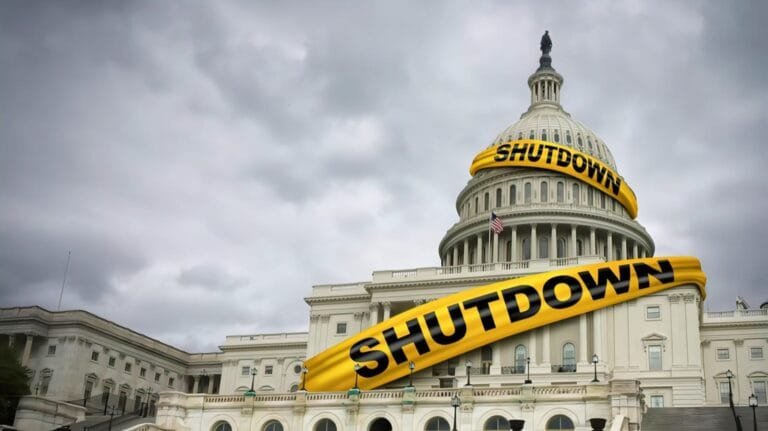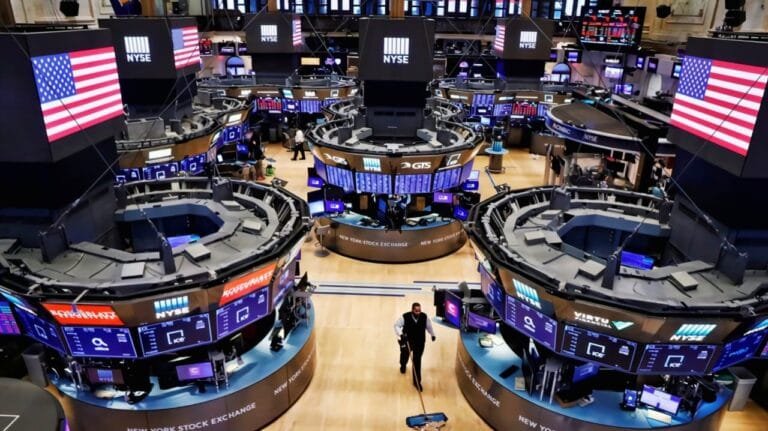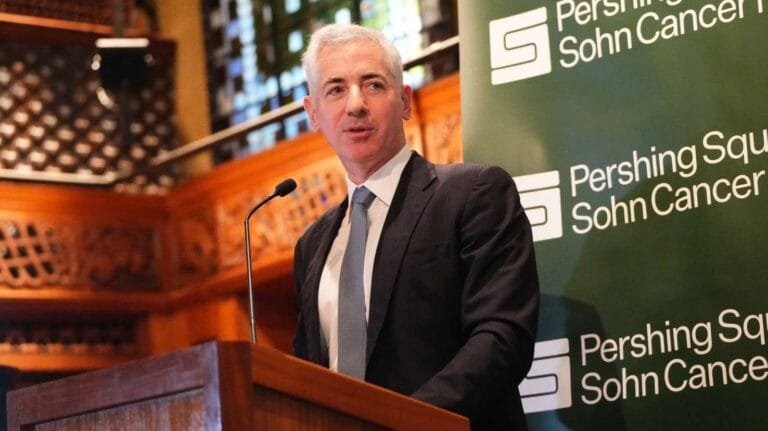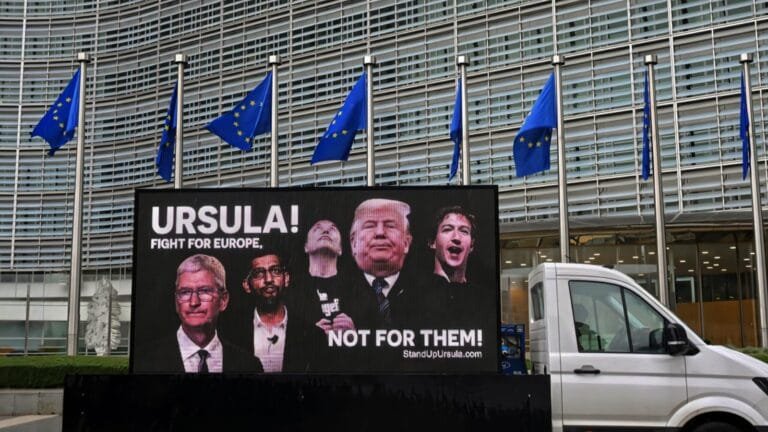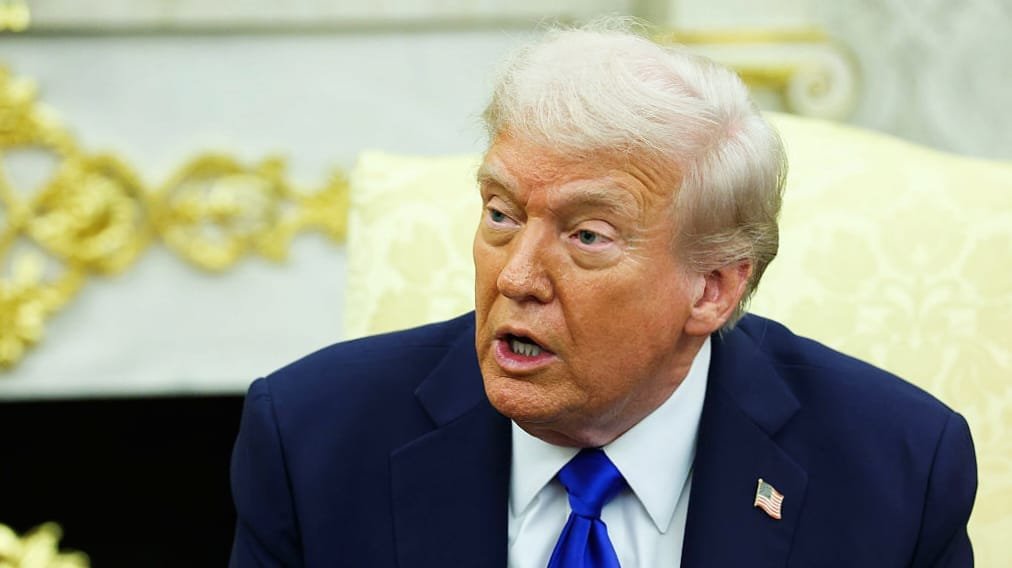
A chart showing how Trump allocated his $82 million bond investment across tech, banks, and municipal issuers.
Why Trump Bought $82 Million: Key Facts and Disclosures of Trump bond investment
Investment: Trump made approximately 175 separate financial purchases between late August (August 28) and October 2, 2025. The total “minimum” amount of these transactions is reported as $82 million. However, the disclosure report also states that the maximum possible value could be as high as $337 million. Bond Type: These bonds are both “corporate bonds” and “municipal bonds.” – Municipal bonds are those issued by cities, counties, school districts, and other public agencies. The report notes that many bonds are related to entities affiliated with public agencies. Variety of Industries The bonds Trump purchased span a variety of sectors, including: Chipmakers: Broadcom, Qualcomm. Tech companies: Meta Platforms. Retailers: Home Depot, CVS Health. Banks: Goldman Sachs, Morgan Stanley.
JP Morgan: He also invested in Intel’s debt. Intel: Trump also purchased Intel bonds. Notably, the US government acquired a stake in Intel (under his direction). Measurement and Independence of Sources Trump’s investment portfolio is managed by a third party—the administration maintains that Trump himself is not involved in every decision. Nevertheless, such large investments could raise potential conflicts of interest, as some of the sectors in which he invests may benefit from his policies. This is not the first time such purchases have been disclosed: another disclosure in August stated that he had purchased over $100 million in bonds since January (after the start of his second term).
These disclosures are made under a transparency law called the Ethics in Government Act of 1978. His annual financial report, submitted in June, showed Trump’s assets to be worth at least $1.6 billion. The report also stated that his income comes from cryptocurrency, golf properties, licensing, and other sources.
Analysis from the perspective of Trump bond investment
Now let’s discuss—what changes this news alone brings, and what hidden possibilities Trump’s psychology, strategy, and political thinking might hold. Below, it’s analyzed from various perspectives. Risk Management: Bonds are generally considered “low-risk” investments, especially municipal bonds. Trump may also be looking to secure a large portion of his money. This indicates that Trump seeks a “safe harbor”—that is, he isn’t relying solely on the stock market (which is volatile), but rather wants to allocate his capital to stable but relatively safe avenues. There’s also a possibility that Trump is anticipating an “economic recession” or stock market decline, and therefore seeks a more stable income source.
Political and Self-Interest: Some bonds are issued by public sector entities (municipal). If Trump’s administration’s policies benefit such sectors, this investment could appear to be “self-interested.” Furthermore, he has purchased bonds of companies that his policies could impact (e.g., financial regulation, tax policy). This could lead to criticism that he is using his power to invest. Such investments may actually present a “conflict of interest”: when you are making rules and also investing in the same sector, questions of transparency and ethics arise.
Portfolio Strategy: Trump bond investment
Trump’s financial manager may be advising him to maintain “diversification”—bond investments in different companies, sectors, and public agencies—rather than investing solely in bonds. Bond investments can provide him with regular income (interest payments), which can reduce his dependence on enterprises (like his other assets). Furthermore, by holding the bonds for a long period of time, Trump can benefit from future changes in interest rates (if interest rates fall, the value of his bonds may increase). Trust & Reputation: Following this disclosure, the public and media may debate whether Trump is using these investments “for his own benefit.” If the investments are managed properly and Trump claims his portfolio is managed by a third party, he may want to maintain an image of “transparency.” However, critics may argue that this is a “money game,” and that Trump is using his economic power for political gain.
Future Policy MovesThe sectors Trump has chosen (chip, tech, banking, retail) are all companies that could be affected by policymaking (e.g., taxes, regulations, government subsidies). Psychological Drivers: Trump is a businessman and is known for being a “profit-seeker.” Such individuals often invest wisely to increase their wealth. Their self-confidence may be very high—they may believe that their policies and administration will lead them in the right direction, and therefore they are investing in companies they consider “winning sectors.” Furthermore, Trump’s investments may also be a form of “survival”: to publicly demonstrate that he is not only involved in politics but also a major financial player, and that his investments still reflect his financial influence.
Potential Concerns and Debates (Risks and Criticisms)
Conflict of Interest (Conflict of Interest) The biggest question is whether Trump is using his position for personal gain. When political leaders choose private investments in the very sectors that could benefit from their policies, it raises significant ethical questions. Although they have disclosed lack of transparency, the documents do not provide the exact amount of bond purchases—only a range is provided. This ambiguity gives grounds for critics to believe that significant information is being withheld.
Investment Risk: Bonds are not foolproof—corporate bonds, in particular, can be at risk of default. If Trump has chosen high-yield or low-rated bonds, he is also taking on risk. Political Reaction: Opposition parties, the media, and civil society could use this investment to argue that Trump is “exploiting his political power.” This could impact Trump’s policy image and electoral prospects. Regulatory Scrutiny: If doubts arise about fairness and integrity, it could become the subject of investigations by US ethics offices, Congress, or other regulatory bodies.
Conclusion: Trump bond investment
Trump has made a significant investment—at least $82 million, and likely much higher (up to $337 million). His investments don’t appear to be simply “putting money somewhere”—they reflect strategic thinking, risk management, and political self-interest. Issues of transparency and ethics arise because these bonds are being selected in sectors that his policies could impact. Trump’s portfolio is managed by a third party, but critics say it still resembles a “skilled investment leader” who is exploiting both his own leverage and power.
